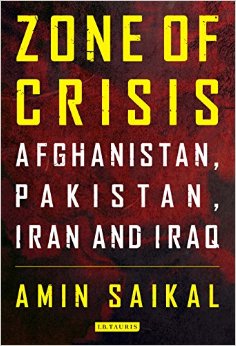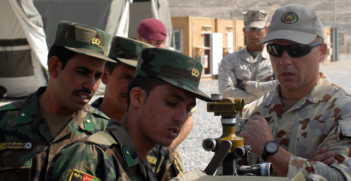Zone of Crisis: Afghanistan, Pakistan, Iran and Iraq

Zone of Crisis is a very apt description of what this very informative book is about. Professor Saikal reviews each of these four countries, which form an arc from the Middle East through Central Asia to South Asia, in terms of those key internal and external factors that have impacted on both their past and contemporary history and pose major challenges for the future.
Each country is examined systemically including variously the relevance of their historical background in terms of contemporary affairs, their ethnic make-up, religious divisions, politics, social issues, internal security, government structures, economics, governance and corruption, international relations and the effects of the interplay of all these factors. While this structure enables the reader to focus on each country individually, it also draws out the relationships between countries and the many common challenges they share.
Some of the fundamental issues Professor Saikal raises include the legacy of colonial boundaries which cut across ethnic habitats or have grouped people of different tribes, ethnicities, cultures and Islamic beliefs into one nation and the related challenges of national unity. Each country also suffers from the political implications between those who adhere to conservative Islam versus reform, the politics of self-preservation of individuals, family dynasties or institutional interests, nepotism and corruption, basic deficiencies in law and justice and the failure of the elite to meet the basic needs of the public generally, especially the poor. The link is clearly made between dysfunctional government in all its forms and the ability of al-Qaeda to exploit this and gain traction and support. Although the significance of the Islamic State post-dates this book, the same principle applies.
The book reviews the complexities of international relationships in some detail. These include the implications of rivalries between the Sunni and Shia within and between states and between Persians and Arabs, Pakistan and India, and Afghanistan and Pakistan. The implications of Kurdish nationalism are also discussed. The importance and positives and negatives of US policies and intervention, including the US objective of democratisation of state are analysed, in some detail and the view put that the template of Western democracy is not an automatic fit regionally.
The book concludes on the urgency of the need for regional stability and security, that ‘democracy’ must rise from within each state and not simply be imposed from outside and whatever form governments ultimately take, they must be decided locally and be inclusive, pluralistic and flexible. There is no suggestion that all of this will happen soon.
Amin Saikal, Zone of Crisis: Afghanistan, Pakistan, Iran and Iraq, I.B. Tauris, 2014
Reviewed by Ian Dudgeon, Presidential Associate, AIIA





